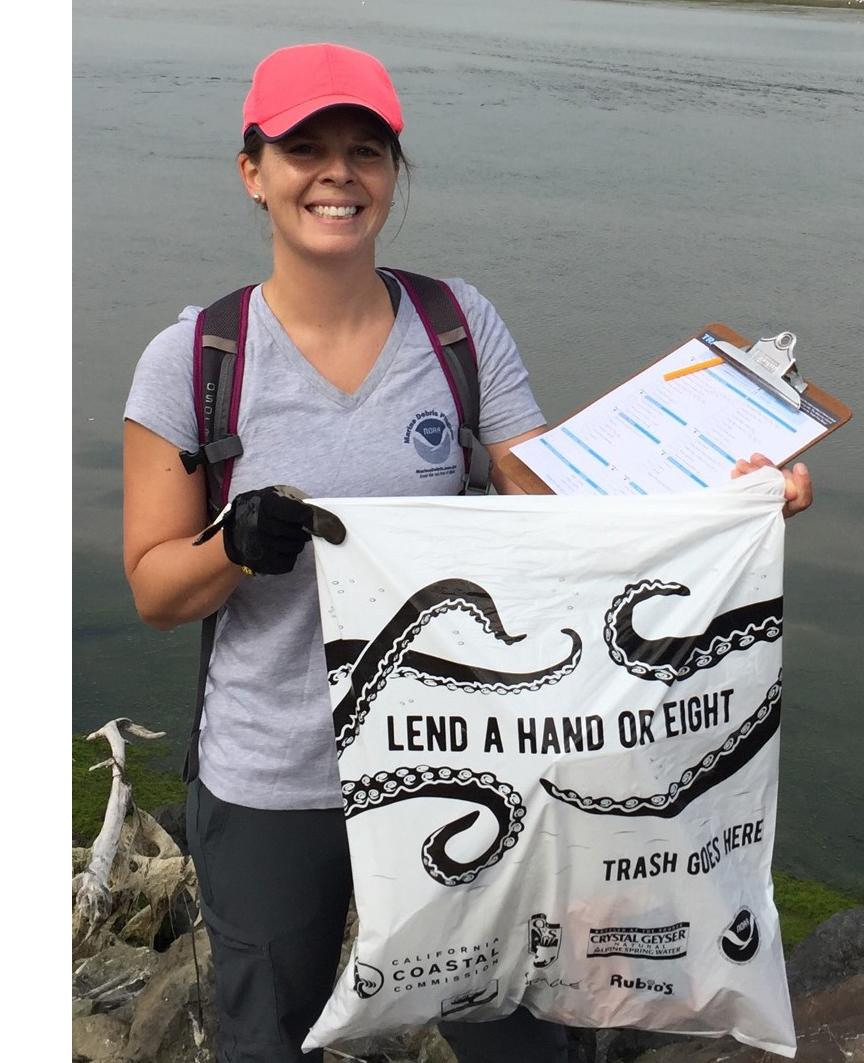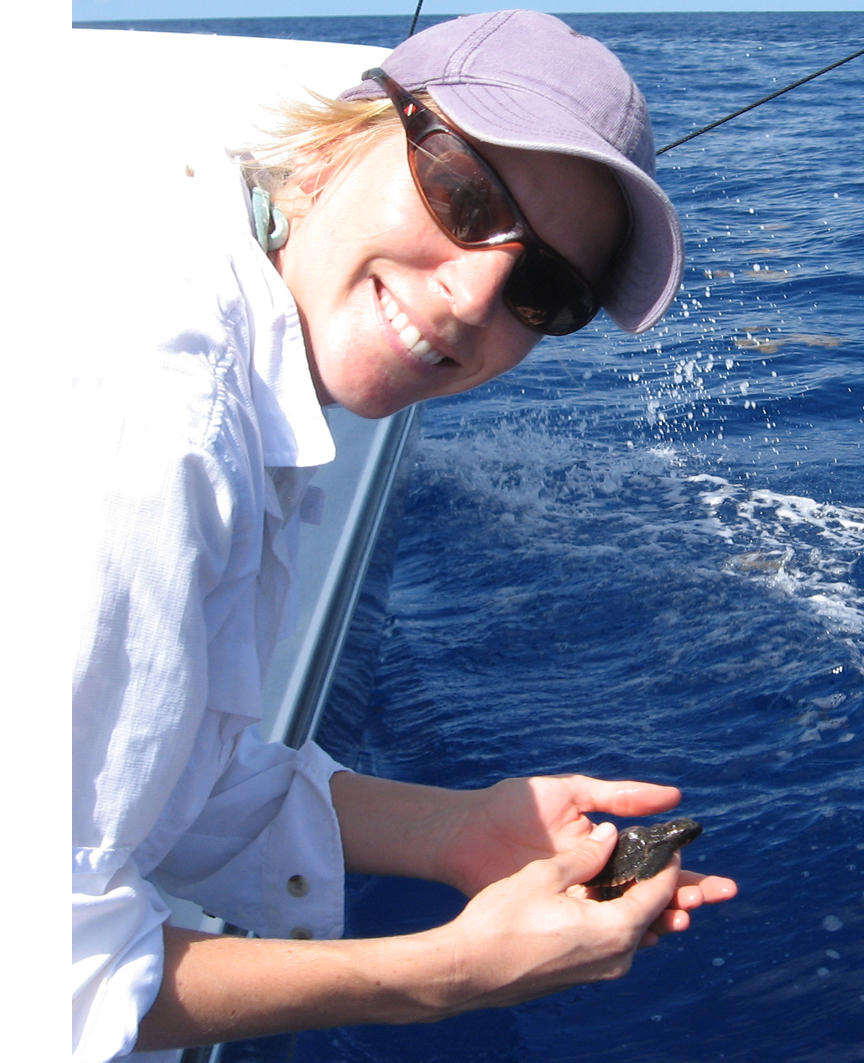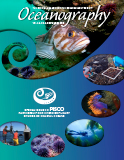Full Text
 SHERRY LIPPIATT | California Regional Coordinator, NOAA Marine Debris Program/IM Systems Group
SHERRY LIPPIATT | California Regional Coordinator, NOAA Marine Debris Program/IM Systems Group
Degree: When, where, what, and what in?
In 2006, I earned my bachelor of science degree in environmental science at Rensselaer Polytechnic Institute in upstate New York. I didn’t have a specific career path in mind, but found that I enjoyed being a student, and pursued graduate school. I joined Ken Bruland’s lab in the Ocean Sciences Department at University of California Santa Cruz (UCSC), and finished my PhD in 2011. My dissertation focused on the biogeochemical cycling of iron, specifically the availability of particulate iron to phytoplankton in the northern Gulf of Alaska.
Did you stay in academia at all, and if so, for how long?
No. Though I had a postdoc lined up, I was also accepted to the John A. Knauss Marine Policy Fellowship Program. The fellowship felt like a better fit because I was interested in making a broader impact while maintaining connections to the research community. I moved to Washington, DC, in early 2010.
How did you go about searching for a job outside of the university setting?
A college internship at the National Institute of Standards and Technology piqued my interest in the government sector, so I had been researching fellowship opportunities. The Knauss Fellowship was my top option, and I put a lot of effort into writing a strong application.
I was a member of the 2010 Knauss Fellowship class, and matched with the NOAA Marine Debris Program (MDP). The MDP was quite small and growing at the time, and I was invited to join the staff after my fellowship to support the program’s diverse research portfolio.
Is this the only job (post-academia) that you’ve had? If not, what else did you do?
Yes and no. I’ve shifted roles within the MDP. I worked out of the headquarters office in Silver Spring, Maryland, for a couple of years, building our citizen science shoreline monitoring program from the ground up. I was offered the opportunity to move back to California in 2012, and now serve as the first ever California Regional Coordinator for the MDP.
What is your current job? What path did you take to get there?
The MDP created the California Regional Coordinator position following the tragic earthquake and tsunami in Japan in 2011. There was a lot of public concern and interest around the debris generated, where and when it would wash up, and what the impacts would be. My boss knew that I was interested in returning to the West Coast, and I had proven to be an effective communicator and partnership builder, so it was a good fit.
As the sole staff member in the state for a relatively small (~20 person) NOAA program, every day is different. I serve as the technical monitor for our marine debris research, prevention, and removal grant projects in the state, and help develop our funding priorities based on regional needs. This requires a lot of coordination with external partners from academia, nonprofits, industry, and other government agencies. I worked closely with the California Ocean Protection Council to host a series of stakeholder workshops, which led to the publication of the 2018 California Ocean Litter Prevention Strategy. The Strategy now serves as a guiding document for the community to tackle this issue over the next five years.
In addition to my duties as a Regional Coordinator, I still lead our nationwide Marine Debris Monitoring and Assessment Project (MDMAP). I am the point of contact for any technical questions from our shoreline monitoring partners, guide redevelopment of our database, and regularly compile and share results with our participants. In 2016, I was honored as a National Ocean Service Team Member of the Year for my leadership of the MDMAP.
What did your oceanographic education (or academic career) give you that is useful in your current job?
Marine debris is an interdisciplinary issue that touches on everything from chemical, physical, and biological oceanography, to ecotoxicology, materials science, socioeconomics, and human behavior. My coursework and research gave me a great basis for understanding the issue, and having spent time at sea helps me relate to the PIs and research projects our program funds. But there are other aspects of my training that are even more relevant. I spend a lot of time summarizing complicated ideas, gathering evidence to make sound recommendations for next steps, and critically reviewing technical proposals. My position requires juggling a lot of projects and tasks at once, so I have to effectively manage my time and be comfortable jumping from one topic to the next.
Is there any course or other training you would have liked to have had as part of your graduate education to meet the demands of the job market?
Communicating with a variety of audiences is the number one skill required for my job. I would have benefited from more experience speaking to nonscientists and building partnerships with relevant agencies and other stakeholders to connect my research to resource management questions. Instead, it’s been trial by fire, and while at NOAA I’ve been fortunate to take additional training in project management, meeting planning and facilitation, science communication, and designing behavior change projects for environmental outcomes.
Is the job satisfying? What aspects of the job do you like best/least?
I really enjoy my job. I think a big part of that is the feeling that I’m providing valuable support to stakeholders, and making important contributions to addressing plastic pollution and other types of marine debris in California. I may feel like I spent all day responding to emails and joining conference calls, but there’s still a sense of satisfaction and forward progress. There are inherent restrictions and roadblocks working for a government agency, but that comes with the opportunity to influence public policy.
Do you have any recommendations for new grads looking for jobs?
Be curious, ask questions, and do not be afraid to take on new responsibilities. I’ve been in so many situations where I felt completely unqualified to do something; each and every one was a growth opportunity.
 HOLLY ROLLS | Owner, Senior Instructor, and Guide, Happy Paddler Kayak Tours & EcoVentures
HOLLY ROLLS | Owner, Senior Instructor, and Guide, Happy Paddler Kayak Tours & EcoVentures
Degree: When, where, what, and what in?
After earning my bachelor of science degree in integrative biology at the University of Florida in 2006, I took stock of my undergraduate experience and decided to take my skills to the Florida Keys, where I worked as a marine fisheries scientist with the State of Florida. I sought any opportunity to be out on the water and joined in loads of local conservation initiatives, dealing mostly with wildlife conservation. Having spent a large part of my childhood in the Keys, it was particularly eye-opening to see how the reefs and fish populations were changing so rapidly. I wanted to learn more about the issues I was noticing out on the water, so in 2009, I joined the Marine Resource Assessment Program at the University of South Florida’s College of Marine Science. My dissertation work focused on tracking the habitat use of fishes throughout Florida’s Tampa Bay Estuary using otolith chemistry. As an innovative tagging technique in the area, I had plenty of reasons to engage with experts around the world to establish protocols and was responsible for designing and managing a dedicated otolith chemistry lab throughout my PhD track. I earned my PhD in marine science in 2014.
Did you stay in academia at all, and if so, for how long?
I did not. While I loved the scientific process and all of the related tasks like grant writing, manuscript preparation, and conference presentation, it became clear to me early on that the higher up the academic ladder I climbed, the more distant I seemed to become from the outdoor environments and issues that initially drew me to the field of marine science.
How did you go about searching for a job outside of the university setting?
I took note of the things that made me happy throughout my dissertation research. I traveled quite a bit to speak at conferences, always cherishing the moments speaking with other scientists and getting excited about what the data meant and what analyses to perform next. And wherever I went, I explored as much as possible—the outdoors made me happy and made me want to do more to help understand and conserve our natural world. It was on a conference trip to Iceland in 2012 that it really clicked: my challenge was to find a way to merge my love for research science with my desire to directly engage people in outdoor experiential adventures so that they, too, would feel that same happy feeling and want to contribute to a collective effort to help. I was still finishing my last year of dissertation work when I launched my ecotourism business in 2013.
Is this the only job (post-academia) that you’ve had? If not, what else did you do?
Immediately following graduation, I accepted a research associate position with the Florida Fish & Wildlife Conservation Commission to continue research on juvenile fish habitat, my focus for the year following my graduation. At the same time, I was continuing to sprout my career in the marine ecotourism business.
What is your current job? What path did you take to get there?
I currently own and operate Happy Paddler Kayak Tours & EcoVentures, an award-winning ecotourism business on the southwest coast of Florida focused on providing deeply engaging ecotour services and professional paddling courses. Since launching the business in 2013, Happy Paddler has earned an outstanding reputation in the outdoor adventure tourism industry (e.g., 100% five-star traveler reviews, consecutive TripAdvisor’s Certificates of Excellence). My work specifically involves providing interpretive tours of the Sarasota Bay marine habitats, coordinating citizen science projects in collaboration with community organizations, and cultivating relationships with surrounding communities to extend our services into various private and public-sector markets. My science background has become a prominent feature in the business, and I’ve written several successful grants to help fund the incorporation of citizen science projects into the ecotours. These projects involve global microplastics research, horseshoe crab monitoring, and stewardship awareness initiatives, and all are simple enough that almost anyone can participate. This is especially rewarding, because it not only satisfies my love of research but also fully engages others in actively contributing to the field of marine science.
What did your oceanographic education (or academic career) give you that is useful in your current job?
My academic path has helped me build a strong background in marine research with lots of practice in collaborative project design and plenty of experience effectively communicating science to diverse audiences. As is natural in any dissertation work, I had to find creative solutions for a diverse set of issues and had to defend those solutions with strength and confidence. Perhaps most importantly, I learned so much about my “style” of contributing to the field of marine science.
Is there any course or other training you would have liked to have had as part of your graduate education to meet the demands of the job market?
Although it’s a skill that is inherently part of life as a grad student, additional exposure to project collaboration would be a plus in any academic career. Building expertise in a highly specialized area of research is extremely valuable, but more so when done in a collaborative setting.
Is the job satisfying? What aspects of the job do you like best/least?
Absolutely. It’s extremely rewarding to have a vision of success and to follow that vision through to a beautiful reality. I love operating the business as one big research project—always testing, evolving, and improving every aspect as needed. Every day is different, and I’m constantly expanding my expertise into diverse areas such as website design, wilderness first aid, employee management, wildlife interpretation, drone photography, graphic design, and, of course, paddling. It is a very full-time job, with no promises of vacation time, no benefits package, and no guarantee that weather, environmental health, and the state of the tourism economy will hold out. These can definitely create a little insecurity—but the rewards of this career always come out on top.
Do you have any recommendations for new grads looking for jobs?
Be creative in finding ways to apply yourself in your field. Accept every opportunity for experiential learning, and apply for every award or grant possible. And have fun!

